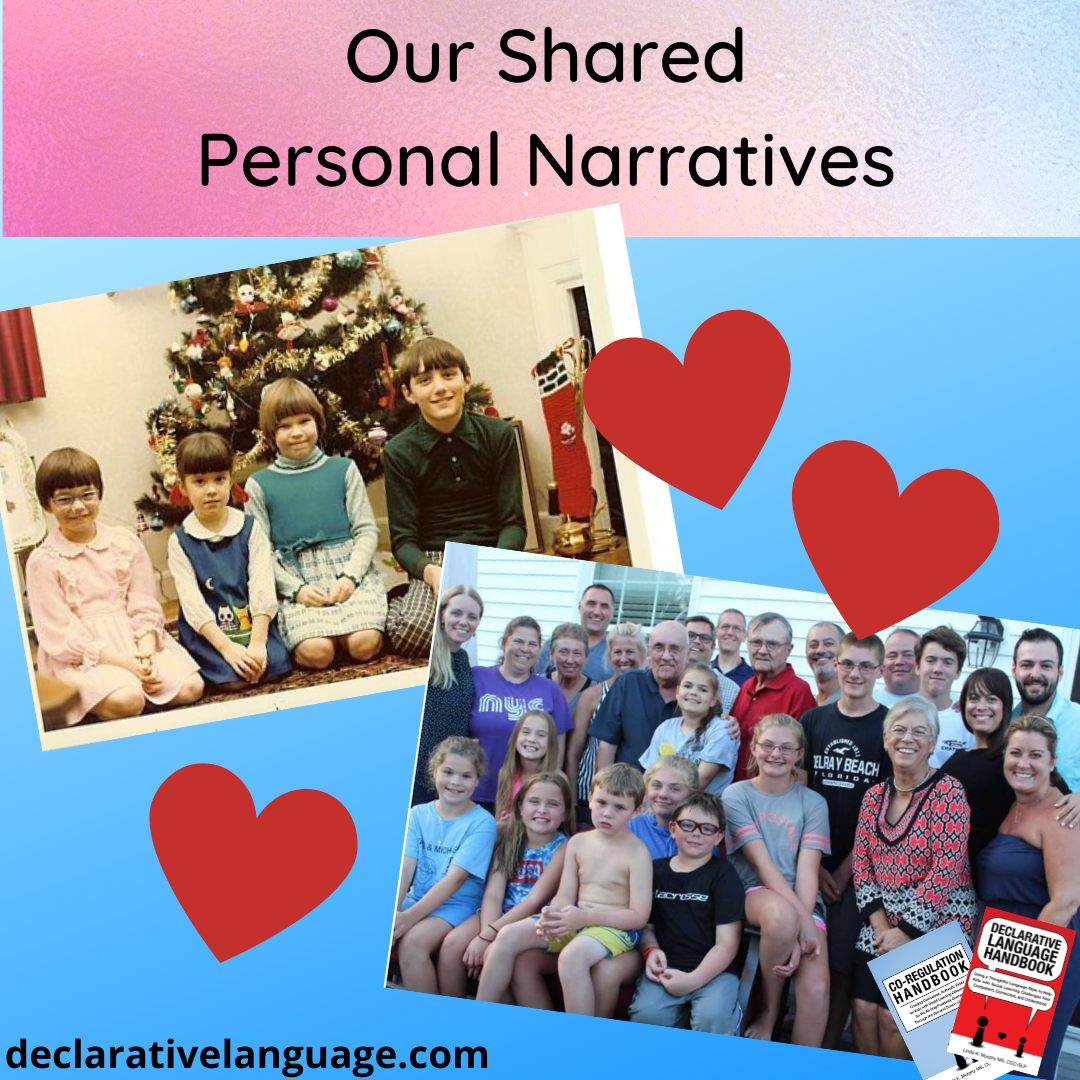Our Shared Personal Narratives
You know those people in your life, that no matter how much time has gone by since you last saw each other, you pick up where you left off? …I know you do!
I am thinking about this now because I had the amazing gift of being with some of these people last weekend, and it was the best. I come from a small family and have only three first cousins. My mom was an only child, and my dad has one brother, who has 3 kids. (I do also have one very special cousin on my mother’s side - “a first cousin once removed” as she likes to call herself – and I wouldn’t want her to feel left out! But I see her regularly, and the relationship I am referring to is a little different).
Back to my 3 first cousins. We only get to see each other every few years these days. The last time was in 2018, and I wish it was more often, but … you know, life. My youngest cousin got married last weekend - and after overcoming a few small obstacles – I made it to the wedding. And I am so glad I did. Because I love my cousins. And no matter how long it has been since I have seen them, we pick up right where we left off. We’re immediately comfortable with each other, we laugh, we catch up, and we reminisce. And we listen with genuine care about each other’s lives in the present, and sincere interest in each other’s plans for the future.
So – how does this all tie into declarative language? Well, what I realized about my relationship with my cousins (and you with those people in your life, where you always pick up right where you left off), is that we are this way because we have a strong personal narrative together. This is what binds us in the past, present, and future: our narrative together. The stronger your shared narrative, or your shared story over time, the stronger your bond.
Now … let’s think about your kids! To develop this shared narrative with others, they need both the internal language to capture meaningful experiences AND the episodic memory to store them over time.
Here is where you can help!
Start to consider your child’s shared narratives with the people in their lives, and get ready to model narrating, weaving, and capturing your child’s story with these people. Using declarative language, of course.
More specifically:
Comment, narrate, and reflect on the meaningful experiences you observe them have with others, so that they form and store these emotional and special memories too.
Also, comment and narrate on plans to come, so your child can look forward to time spent with these people in the future.
Examples might be:
You and Jack were laughing so hard when Grampy honked his horn and yelled out the window!
Natalie loves Minecraft, just like you do! I love how you have that in common. I remember when you used obsidian to create a portal to The Nether. You two are a great team!
We have plans with Mikey again next Saturday! You both love McDonald’s, so we might go there.
Or even…
I remember you and Josie were upset with each other last week. I’m so glad that you worked it out and hung out again today.
Shared narratives between people - and subsequently, relationships - are formed over the course of time. And they are not formed through question asking (“What did you today?”) or demands (“Say hello to your cousin”). They are formed through declarative language, either in our own mind, or if we don’t yet have strong enough language skills and episodic memory to do it on our own, when others narrate for us.
Remember this and be GENEROUS with information about what you observe between your children and the special people in their lives. Reflect with your child in a co-regulatory way where you are the “story-teller” of the important moments in their lives, and they are “the listeners”, capturing and storing these special memories about themselves, with your help, that will carry them into the future.
Watch your child’s face light up, as you narrate your observations or memories of the small but meaningful moments. And know that you are laying the groundwork for them to have those people in their lives, that no matter how much time has gone by, they can pick up where they left off.
Have a great week!
If you like my Sunday Snippets of Support, you can receive them directly to your inbox here.


